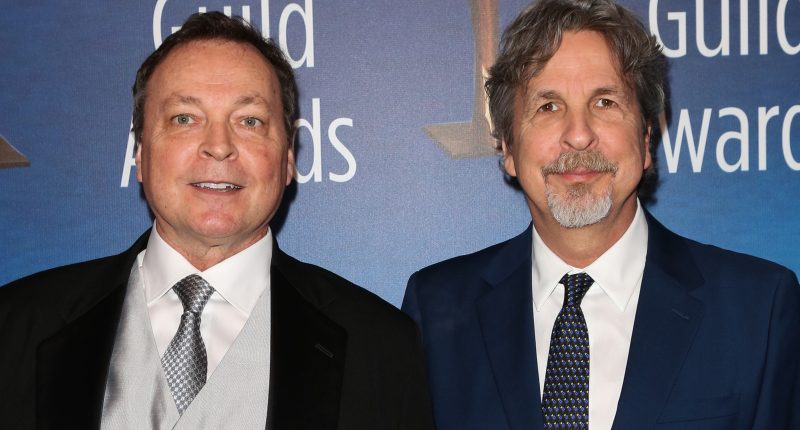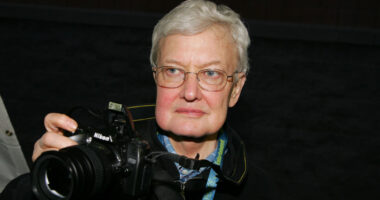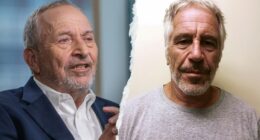Share this @internewscast.com
The films created by brothers Bobby and Peter Farrelly, blending heartfelt moments with unabashedly vulgar humor, were staples throughout the mid-to-late ’90s. Memories of scenes like Lloyd (played by Jim Carrey) and Harry’s (Jeff Daniels) madcap escapades across the country in “Dumb and Dumber,” the notorious “hair gel” moment in “There’s Something About Mary,” and Carrey’s comedic battle with himself in “Me, Myself and Irene,” still linger with audiences. With a signature style focusing on bodily humor, endearing underdogs, awkward mishaps, and slapstick gags reminiscent of the Three Stooges, the Farrellys crafted a humor blueprint that paved the way for creators like Seth MacFarlane and the “American Pie” series.
However, after a sequence of films that struggled financially and some missteps in production, the Farrellys drifted from the blockbuster comedies that solidified their fame. They have shifted their focus to crafting films and TV series for streaming platforms, successfully producing content that finds its audience but doesn’t quite capture the era or dominate the cultural landscape as their earlier work did. So, what led to this shift, and what are the brothers doing now? Here’s a look into their ascent, downfall, revival, and current endeavors.
The Farrelly Brothers helped define the 1990s
The Farrelly brothers took two distinct paths to break into Hollywood. Peter initially made a name for himself in entertainment as a gag writer for Paul Reiser and later, with Bobby, earned notice for helping to create the “Seinfeld” episode titled “The Virgin.”
When success arrived at the brothers’ doorstep, it came swiftly. In 1994, they co-wrote, produced, and directed “Dumb and Dumber,” a road trip comedy about a pair of objectively stupid best friends who become entangled in a kidnapping plot. It made over $247 million worldwide, becoming the big hit of the 1994 holiday season and making back its budget and then some. The Farrellys were promptly crowned the kings of the comedy world.
Their next project — the bowling comedy “Kingpin” — was less of a hit but also earned back its investment. Then came the semi-sweet romantic comedy “There’s Something About Mary,” which climbed its way to the top of the box office as the fourth highest-grossing film worldwide in 1998. The story, about an irresistible girl, Mary (Cameron Diaz), who manages to attract all sorts of ruffians, including one dopey shmoe of a sweetheart (Ben Stiller, in arguably one of his best roles) who stalks her and lies his way into her heart, cemented the brothers as legends in the comedy game. They followed that up with the split personality comedy “Me, Myself and Irene,” which, like “Dumb and Dumber,” opened in first place at the North American box office and has proven to be a Jim Carrey film still worth watching today. Even with some minor missteps in the early part of their career — Bobby’s co-writing the flop Daniel Stern vehicle “Bushwhacked,” for instance, from which he had his name removed — their rise was meteoric. Unfortunately, luck wouldn’t always smile on them.
Shallow Hal changed everything
The Farrellys have always been known for producing films loaded to the gills with raunchy humor and stereotypes, but after a string of successful films mocking people of all shapes, sizes, and intellectual abilities, it was “Shallow Hal” that finally began to tip public favor against their style of humor. Featuring Jack Black as a playboy who only dates thin model types, his life is changed when a friend hypnotizes him to only see the inner beauty of others. He meets Rosie (Gwyneth Paltrow), who seems to be Hal’s idealized partner made flesh. He doesn’t realize that Rosemary is actually plus-sized, but the movie underscores the point with collapsing chairs and other sight gags.
Not only was it not critically popular, it also was the first to draw serious controversy to the team. Fat activists expressed their dismay and anger at the film’s treatment of Rosemary around the time of its release. Years later, Paltrow said she regretted donning a fat suit for the movie, calling it a “disaster” during a Netflix BFF Test segment with her assistant, Kevin Keating. That said, it did open in second place at the box office and pulled in over triple its budget.
Their next three films — the ambitious but only retroactively popular cult classic animation-live action hybrid “Osmosis Jones,” the goofy conjoined twin comedy “Stuck on You,” and the romantic comedy and Boston Red Sox tribute “Fever Pitch” — didn’t break records like their earlier work. Though their remake of Elaine May’s “The Heartbreak Kid” did decently financially, it hit new lows for them critically, with many calling the original the superior film of the two. “Hall Pass” returned them to their raunchy roots and was a minor hit, but their rejuvenation of “The Three Stooges” proved to be only moderately popular, mindless fun.
The brothers have moved to individual projects
In 2013, the Farrellys began to produce, write, and direct independently of one another on a more frequent basis. The results have been mixed for both siblings, resulting in the highest of highs and the lowest of lows.
For Peter Farrelly, it meant directing a segment for and co-producing “Movie 43,” a sketch comedy film comprised of different vignettes from an assortment of directors. It was a notorious bomb, both commercially and critically. Farrelly later snagged two Oscars in 2019 for co-producing and co-writing the best picture of the year, “Green Book,” which he also directed. A drama about real-life pianist Don Shirley (Mahershala Ali) and his mob-connected bodyguard Tony Lip (Viggo Mortensen) traveling through the segregated deep south in the early 1960s, the film drew criticisms from Shirley’s family due to a number of inaccuracies, including its failure to correctly portray the real relationship between its dueling protagonists and their nonexistent friendship.
Bobby Farrelly kept a lower profile, directing four episodes of the popular Canadian sitcom “Trailer Park Boys” and co-producing the TV series “Unhitched,” which Peter also helped produce. But despite working on solo projects, the pair reunited to co-produce, write, and direct “Dumb and Dumber To” in 2014. A sequel to their very first hit, it catches up with Harry and Lloyd decades later as they become embroiled in a paternity scheme. It was a surprise success and is the most recent shared hit of the brothers’ careers. They also collectively participated in the reality series “Project Greenlight,” acting as mentors in Season 4 before Peter quit due to the program’s chosen direction, leaving Bobby alone to finish the season.
The Farrellys mainly work – separately – for streamers now
Over the past decade, the Farrelly brothers have produced the majority of their work for streaming platforms. Peter wrote and directed “The Greatest Beer Run Ever” and the uneven but still funny “Ricky Stanicky.” The latter is a Prime Video exclusive, while the former only streams on Apple TV +. He’s also produced the independent feature “Daruma.”
Bobby, meanwhile, executive produced the independent film “Lez Bomb,” about a woman’s disastrous attempt at coming out during a Thanksgiving trip to see her parents. He also directed “The Champions,” a comedy starring Woody Harrelson that’s about a minor league basketball coach sentenced by a judge to coach a team with intellectual disabilities. His holiday comedy, “Dear Santa,” which Peter co-wrote and co-produced, was distributed by Netflix. The brothers also co-executive produced “The Leisure Class” together. When it comes to television, Peter has directed two and co-produced eight episodes of the AMC series “Lucky Hank,” which features Bob Odenkirk in a mundane world as a college professor going through a midlife crisis.
The brothers have also reunited on two streaming projects: the Roku Channel’s “The Now” and “Loudermilk,” which was an AT&T Network Original before being picked up by Prime Video. “The Now” is a microseries about a man trying to change his outlook on life in the face of hereditary depression; Peter directed four segments and Bobby ten, and they collectively wrote 14 episodes. “Loudermilk” is about a recovering addict named Sam Loudermilk (Ron Livingston) who works as a substance abuse counselor; Bobby directed 14 episodes, Peter 16, and Peter wrote thirty installments. Though they may have shifted their focus away from theatrical releases, the brothers are keeping busy even if they aren’t ruling the box office.








